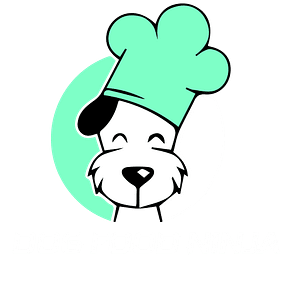So the ingredients of any people need clarification about dog food ingredients, So I know more pet food has low ingredients and calories. We will explore all the ingredients and nutrition that you will feed your dog, and I will suggest some foods that provide the best nutrition for your dogs. But with the vast array of dog food options available, understanding what ingredients make up a healthy diet can be daunting.

Table of Contents
Toggle1. The Power Of Protein:
Protein is essential for dogs, as it provides the building blocks for strong muscles, tissues, and organs. High-quality protein sources include:

Meat: This is the most important way dogs get their protein. When buying dog food, ensure the first ingredient listed is a specific type of meat, like chicken, beef, lamb, or fish.
Chicken: is a lean protein that is easily digestible for most dogs. you can make homemade dog food with chicken.
Beef: Rich in essential amino acids, beef is a popular protein choice.
Fish: Provides omega-3 fatty acids, which are beneficial for skin and coat health.
Lamb: Offers a novel protein option for dogs with food sensitivities.
Eggs have lots of good protein and important vitamins and minerals.
Other things that give protein in dog food include beans like lentils and peas and grains like corn and wheat. But proteins from plants are more challenging for dogs to digest than proteins from animals.
1: How Much Protein Does My Dog Need?
How much protein your dog needs can change based on a few things, like:
1: Age;
- Puppies and pregnant or lactating mothers need extra protein to support their rapid growth and development.
- Adult dogs require less protein for maintenance once they reach their full size.
2: Activity Level;

Dogs that are very active, like those who love to play fetch or go on long hikes, will burn more calories and may need extra protein to keep up with their energy requirements.
3: Overall Health;
Dogs with certain health conditions, like kidney disease or obesity, may require a different amount of protein in their meals. It’s essential to consult with your veterinarian to determine the right balance for your dog’s specific needs.
2. Carbs For Energy:
Carbohydrates are an important energy source for dogs, but not all carbs are created equal. Simple carbs, like sugary treats or white flour, make your dog’s energy go up and down fast, which can lead to feeling tired and gaining weight. Instead, choose a dog food with complex carbs that give you steady energy.
Even though dog food ads usually talk a lot about protein, carbs are super important, too! They give your dog the energy they need for all fun activities, like walks and playful zoomies.

Healthy carbohydrate sources include:
Brown Rice: is a complex carbohydrate that provides sustained energy.
Sweet Potatoes: Packed with vitamins and minerals, sweet potatoes are easy to digest.
Peas: High in fiber and low in glycemic index, peas are a nutritious option for dogs.
1: Tips For Choosing Carbohydrate Sources;
1: Check The Ingredients;
Let’s talk about what’s in that bag of dog food. Look for
Whole grains: These should be listed near the top of the ingredients list.
Avoid fillers: Avoid simple carbs like corn, wheat, or soy; they don’t offer much nutrition.

2: Think About Your Dog;
Every dog is different, just like us! So, consider:
Activity level: If your dog is a real go-getter, they might need more carbs for that extra pep in their step.
3. Fats And Oils For Vitality:
Fats and oils play a crucial role in supporting skin and coat health, as well as aiding in nutrient absorption. Look for these healthy fat sources:

Salmon Oil: rich in omega-3 fatty acids and salmon oil, which promotes a shiny coat.
Flaxseed Oil: Provides alpha-linolenic acid, a plant-based omega-3 fatty acid.
Coconut Oil: Contains medium-chain triglycerides, which can boost energy levels.
Chicken fat is good for your dog because it has omega-3 and omega-6 fatty acids, which are important for their health. It also gives them natural energy.
1: Feeding Tips;
Talk to your vet about how much fat is best for your dog’s food. If you’re giving them fish oil or other extras, use the right amount to keep their fat levels in check. Keep an eye on your dog’s weight and give them more or less food as needed.
4. Essential Vitamins And Minerals:
Dogs, like people, need different vitamins and minerals to stay healthy. Vitamins and minerals are necessary for overall health and well-being in dogs. Important nutrients to look for include:
Vitamin A supports vision, health, and immune function.
Vitamin D: Helps regulate calcium and phosphorus levels for strong bones.
Iron is essential for the production of red blood cells and oxygen transport.
1: How Does Your Dog Get Them?
Good dog food should have everything your dog needs to stay healthy. This includes important vitamins and minerals whose ingredients come from meat, veggies, and whole grains. Sometimes, extra vitamins and minerals are added during the making of the food to ensure your dog gets all the nutrition they need.
5. Decoding Dog Food Labels:
Understanding how to read dog food labels is key to selecting the right food for your dog. Look for labels that indicate:
- Complete and balanced nutrition.
- AAFCO (Association of American Feed Control Officials) certification.
- Clear ingredient lists with recognizable, high-quality ingredients.
6. Making Informed Choices:
When choosing a healthy dog food for your pet, consider factors such as:

Age: Puppies, adults, and seniors have different nutritional needs.
Breed: Large breeds may require special formulations for joint health.
Activity Level: Active dogs may need a higher protein and calorie content.
Conclusion:
In conclusion, providing your dog with a nutritious diet is one of the best ways to ensure their health and longevity. By understanding the key ingredients found in healthy dog food, you can make informed choices that support your dog’s overall well-being. Remember to consult with your veterinarian if you have any questions or concerns about your dog’s diet.
FAQ’s:
How Much Protein Does My Dog Need?
Dogs need protein to keep their muscles, tissues, and organs strong. How much protein your dog needs depends on things like their age, size, and how active they are. Puppies and dogs that are always on the need more protein for growing and staying energized, while older dogs need a bit less. Your vet can help you figure out just the right amount of protein for your furry friend.
What Are Some Good Sources Of Protein In Dog Food?
You can find protein in lots of different foods that dogs love. Meats like chicken, beef, lamb, and fish are great sources of protein. Eggs are another good choice because they have protein and important vitamins and minerals. Some dog foods also use plant-based proteins like beans and grains, but dogs usually find it easier to digest proteins from animals.
Why Are Carbohydrates Important In Dog Food?
Carbohydrates are like fuel for dogs; they give them the energy they need to run, play, and be happy. Carbs also help dogs feel full and satisfied after they eat. Look for carbs like brown rice, sweet potatoes, and peas in your dog’s food. It’s best to avoid foods with lots of simple carbs, like sugary stuff and refined grains, because they can make a dog’s energy level go up and down quickly.
Do Dogs Need Fats And Oils In Their Diet?
Yes, dogs need fats and oils to keep their skin and coat healthy. Fats and oils also help dogs absorb certain vitamins that they need to stay healthy. Try to pick dog foods that have healthy fat sources, like salmon oil, flaxseed oil, and chicken fat. It’s important to make sure your dog gets the right amount of fat and oils to stay in good shape overall.

